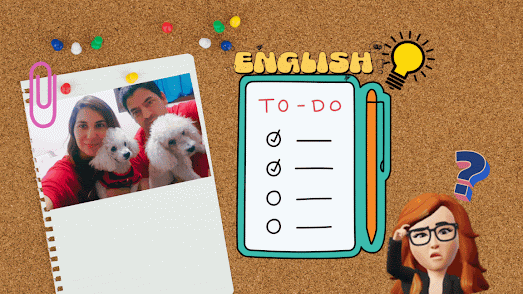IELTS- What do you need to know?
Hello everyone! I'm here again, this time to talk about a new subject, IELTS. Do you need to take a proficiency English test to enter a foreign university for example? well the IELTS is one of these tests. I'm studying for the IELTS test, so I decided to talk about him to you.
What does IELTS mean?
International English language testing system. IELTS is a widely accepted English language proficiency test. Designed to assess the language proficiency of people who need to work or study where Engish is the language of communication.IELTS scores are recognized for entry into the majority of universities and colleges in the: United Kingdom, Ireland, Australia, New Zealand, Canada, and the United States.
We know, students must familiarise themselves with the IELTS test pattern to do well.
IDP or British Council (BC)?
There are two types of important tests from IELTS: IDP and BC. We can ask ourselves: Are the same test? Yes, there is no difference between the IDP and BC, and no existing difference between examiners making BC and IDP, Because all tests used BC and IDP are compiled by Cambridge English Language Assessment.
Other doubts which can arise are about accents, IDP is Australian and BC is British, but they use a range of accents. So, how do I choose? According to the date you want to do the test, if close to your home, for example.
Test format
IELTS academic and IELTS general training. You must know exactly which one you are going to do before you start preparing.
IELTS Academic: if you want to study at undergraduate and postgraduate levels, and for those seeking professional registration.
IELTS general training: For test takers wishing to migrate to an English-speaking country and for those wishing to train or study at below degree level.
How many skills are tested?
There are four skills:
Listening,
Reading,
writing,
speaking.
Which skills do you take on the same day?
Is there a break between the reading and writing tests?
No there.
can you use a pencil in the test?
Pencil or pen. You can choose.
IELTS online at home?
In 2022 IELTS started offering the test online.It's the samae test that everyone take. The result available in just 3-6 days.
How long IELTS result valid?
two years.
Summary of the four skills of the IELTS test
1- Listening skill
How many sections?
Four sections. In sections one and two, the types of questions are based on social situations.
In sections three and four, the types of questions are more academic.
Each section has 10 questions.
How long does the skill take?
Are 30 minutes to answer the questions and 10 minutes to transfer your answers to the sheet.
How many times will I be able to listen to the recording?
Unfortunately, once.
Task type:
2- Reading skill
How many reading passages?
This skill has 40 questions with 3 reading passages. the types of texts are Everyday English life, Work issues, and Based on a topic of general interest.
how long does the skill take?
One hour. That is you have 20 minutes for each passage.
What kind of reading passages are there for the IELTS academic?
- Long text
- Usually taken from books
- Complicated language
- Academic vocab
- Sometimes diagrams and maps
Task Type:
3- Writing skill
How many parts and words? How long does the skill take?
What spelling to use, UK spelling or US spelling?
You choose, what you can't do is mix.
What's the difference between the academic paper and training in task 1?
Training: To write a letter.
Academic: To write a report based on a chart.
Can I get extra writing paper if I run out of space on my answers shut?
Yes, you can.
4- Speaking skill
How many parts, and words? how much time?
Three parts.
How many questions will I be asked?
There are 12 questions in Part 1 and 5 or more questions in Part 2.
The IELTS band score scale
The IELTS website says:
"The individual IELTS scores for Listening, Reading, Writing, and Speaking are all equally weighted. They are rated from 0 – 9, with increments of 0.25, 0.5, and 0.75."
In the image above you can see a map that shows an individual's language skills along a six-mark scale ranging from A1 (beginners) to C2 (advanced). The highest CEFR (IELTS and the Common European Framework) level in IELTS would be band 9. The CEFR is an international standard for describing language ability.
IELTS listening score (training and Academic):
Writing assesment criteria
- Coherencia and cohesion
- Lexical resource
- Gramatical range accuracy
The speaking skill evaluation criteria are:
- Fluency and coherence
- Lexical resource
- Gramatical range and accuracy
- Pronunciation
That's it for today. Until next time, take care! Goodbye!👊
References












.gif)





Comments
Post a Comment